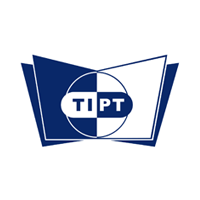
While it may seem obvious that technology plays a significant role in the world of both today and tomorrow, there are still many areas it influences which are becoming a growing concern, such as how companies protect themselves against cyber threats and attacks. The pharmaceutical industry, in particular, struggles with implementing safe and sound cybersecurity defenses. In fact, Merck & Co., one of the largest pharmaceutical manufacturers in the world, was a high-profile target of a ransomware attack in June 2017, which cost their insurers at least $275 million.
Currently, 79% of pharmaceutical companies have already begun investing in identity & access management (IAM) solutions in order to better manage their user identities and data privacy, as well as keep critical information about their business protected. The relationship between cybersecurity and the pharmaceutical industry is one that continues to be explored and defined, but it will nevertheless play a major role in the future as more technology is introduced into the field.
If you’re interested in attending pharmaceutical school, read on to learn more about why cybersecurity is so important to your future career.
Why Should Pharmaceutical School Graduates Care about Cybersecurity?
From research and development to test trials and consumer data, the pharmaceutical industry manages a significant amount of information and intellectual property. This means that areas such as patented drugs or medicines as well as developing medicines are especially vulnerable because an entire company’s value can be leveraged if someone malicious gets a hold on this information.
Drug formulas and research are often stored within a company’s digital database. Because the formula is still only a formula, instead of a final product, it can be used by anyone who understands the process and can be stolen from a company for a competitor’s success. A cybersecurity system or protocol is necessary because it acts as a primary defense against outside cyber attacks, which in turn helps better protect the information pharmaceutical companies rely on to remain in business.

Cybersecurity Helps Protect the Pharmaceutical Manufacturing Process
Students enrolled in pharmaceutical courses should know that cybersecurity can actually protect against much more than just malicious attacks. There are many different components that affect how pharmaceutical products are made, and one of the most important behind-the-scenes technologies is the industrial control system network that assists in large batch processing.
This network often involves what’s known as multiple programmable logic controllers (PLCs) and distribution control systems (DCSs). These help regulate the low-level equipment which combines various compounds into the final drug. Occasionally, there may be a misconfiguration error with a PLC or DCS, which negatively affects the manufacturer. For those who want to enter pharmaceutical manufacturing after their pharmaceutical program, a misconfiguration error means that you would be using valuable time to identify and fix the error instead of focusing on more important work, potentially falling behind on your schedule, deadlines, and overall productivity.
A cybersecurity monitoring system has the ability to proactively recognize the cause of a misconfiguration, as well as prevent hackers from replicating and exploiting any mistakes they find. This means that pharmaceutical employees won’t have to be concerned over recurring errors and can instead direct their attention to more important work.
The Future of Cybersecurity in the Pharmaceutical Industry
Cyberattacks that have occurred against pharmaceutical companies in the past can benefit the industry because we can then learn how to avoid them in the future. After Merck & Co. was attacked in 2017, there was a similar intrusion attempt in 2018 against LabCorp, which was able to detect the suspicious activity and enact damage control measures almost immediately, saving valuable information and resources.
The legacy system that is often involved in pharmaceutical infrastructures must be readdressed to be more responsive to the cyber threats that come with new technology. What affects one company in the pharmaceutical industry may affect all of them—a cybercriminial won’t often be deterred by location, size, or affluence if they think their attacks will be successful. Effective cybersecurity helps protect companies from losing consumer data, repeating costly clinical trials, lost revenue, and the tangle of litigation that may come from the cyber attack itself.

Are you interested in starting a new and rewarding career with pharmaceutical school?
Contact Toronto Institute of Pharmaceutical Technology for more information.
